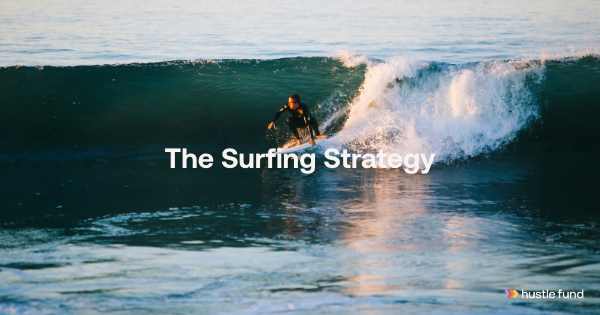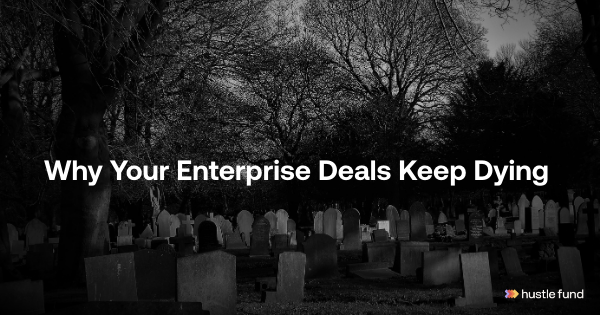Why VCs hate long sales cycles
Hustle Fund receives over 1,000 pitch decks every month. Unfortunately, we only invest in a few of them.
A common reason for the rejection is a startup’s long sales cycle.
Why do we (and other VCs) care about this? What makes a sales cycle “long?” And why is it relevant for you?
Great questions. Let’s dive in.
Why do VCs prefer short sales cycles?
The VC asset class revolves around two aspects:
a. VCs don’t just look to fund good businesses. Their job is to find and invest in the highest possible multiple-returning companies.
What does that mean? It means there has to be a BIG multiple from the entry to the exit point.
For example, say you invest $100 at a $3M post-valuation. For the investment to be worth it, the company should exit for at least $300M.
b. VCs operate in a limited time window (generally, an 8-10-year cycle). So, they want companies to achieve significant growth within that time.
Only a few companies meet both conditions. These are businesses that can generate $100M in revenue by year 5 or 6.
Here’s what that looks like:
- Year 1: $500K
- Year 2: $3M
- Year 3: $15M
- Year 4: $40M
- Year 5: $100M
Yes, this type of growth is rare and hard. But it’s possible. This is a graph of one of our portfolio companies that did it:

To achieve such rapid growth, the sales cycle has to be short. The quicker you go from generating leads to converting them to paid customers, the more you can reinvest that money to fuel further growth.
And that’s what VCs want. The faster you grow, the more likely your startup will exit at a BIG multiple, and they'll earn a high return.
Factors affecting the sales cycle
You can grow sales fast (and thus have a short sales cycle) when you:
- make someone $$ (Shopify)
- save someone $$ (Ramp)
- save someone time; this is the weakest (Zapier)
In B2C, customers will also pay for love/lust + fame/cool factor.
If your product doesn’t fit into any of the above value propositions, it’s generally a “nice to have”, and growth will be slow.
There are other factors that make the sales cycle long:
- Customers are locked into a contract and can’t buy now.
- You’re competing in a market with other alternatives. Customers take more time to evaluate options, which prolongs the sales cycle.
- Multiple decision makers involved.
The moral of the story
Because VCs have limited capital and timeframe, they invest in only those companies that they believe will grow fast and yield the highest multiple. Long sales cycles (generally) don’t allow for this outcome, so VCs prefer companies with short sales cycles.
To increase your chances of getting investments, ensure you've a short sales cycle.
You can do so by targeting the right audience, identifying their pain points, creating a highly differentiated product (and marketing it), and creating a winning sales process (from having a continuous stream of leads to knowing how to address buyer objections to finally closing them).
This article was written by Sameer Ansari. Sameer has 4+ years of experience writing for technology startups, VC funds, and founders. You can find him on Twitter here.











